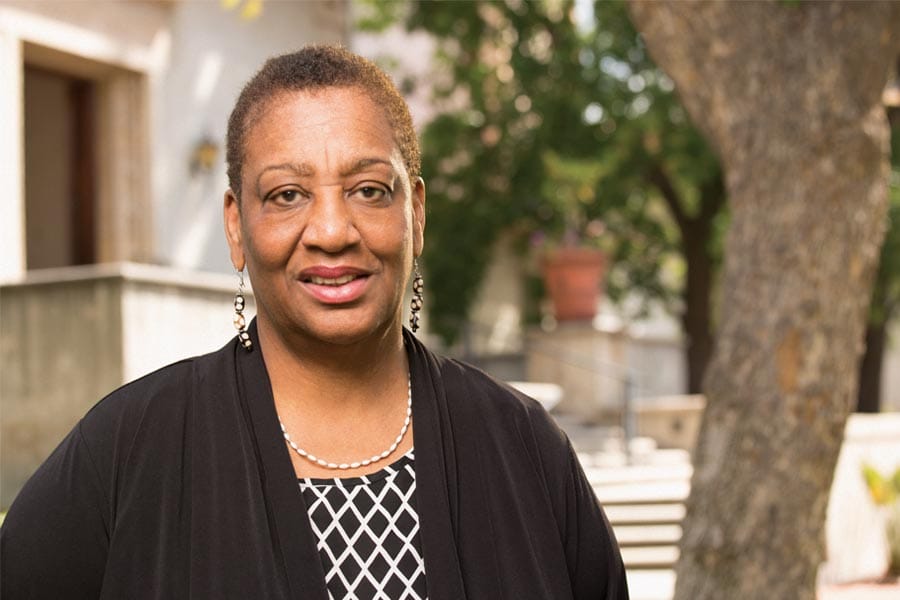Applied Gender Studies: The Intersection of Theory and Practice

Professor Linda Perkins, director of Applied Gender Studies, spoke with us about the history of the program and the importance of real-world application, transdisciplinarity, and global thinking to a CGU education. A historian and feminist scholar whose research focuses on the history of Black women in higher education, Perkins recalls that gender studies, which in the past was mostly referred to as women’s studies, is a relatively new academic discipline within the humanities. CGU’s Applied Gender Studies program (originally Applied Women’s Studies) came to fruition in 2001. The program was put together by Jean Schroedel and Karen Jo Torjesen; those were the first two directors, Perkins recalled. The path to women’s and gender studies becoming a discipline that is accepted by academia hasn’t been easy.
“Jean Schroedel was told she would never get tenure [for teaching women’s studies]”, Perkins said. “Doing research on women was not considered a serious topic of academic research.” Despite pushback, AGS found its home in the School of Arts & Humanities.
The master’s program, unique when it was designed, centers on the intersection of theory and practice, prompting students to engage in real-world applications of feminist theory, as opposed to studying only theory. Instead of writing a final thesis, students are expected to complete a 100-hour internship. “Now, so many programs have piggybacked and copied us,” Perkins said. AGS students have completed internships relating to issues of gender identity, LGBTQ+ rights, sex education, global gender equity, and many more. “We’ve even had a student intern in Delhi,” Perkins said.
It helps that Perkins is a member of the International Center for Research on Women, as well as a member of the Ms. magazine board of scholars. Ms. is housed by the Feminist Majority Foundation, which works on a range of feminist issues and has provided internships to many AGS students.
The importance of real-world application through internships is not the only thing that sets the program apart from other graduate-level gender studies programs. “It’s tailored to the individual,” Perkins said. “Students can pick their own concentration and they can also work with people across campuses.” Faculty from across the 7Cs teach innovative gender studies courses. They include Feminist Research Methods and Inquiry taught by Claremont McKenna College’s Visiting Assistant Professor of Government (Public Policy) Dionne Bensonsmith, and Building Global Bridges: Anti-Racist and Anti-Casteist Transnational Feminist Activism taught by Scripps College Professor and Department Chair of Feminist, Gender and Sexuality Studies Piya Chatterjee. As Perkins explained, what’s great about bringing in faculty from the 7Cs is that the program can always stay relevant. If students want to see a course on a particular issue, it’s usually not hard to make it happen.
The Applied Gender Studies program, with its emphasis on pragmatic experience and diverse course offerings, embodies CGU’s ethos of transdisciplinarity. “I was one of the first people to teach in the transdisciplinary department,” Perkins said. “I do history, I do education, I do gender studies, so it was just pretty much already a part of my work.” Perkins noted that crossing boundaries is integral to gender studies, whether by sharing different cultural knowledge, building communities across differences, or building bridges between academic disciplines. Moreover, the skills that students learn from the transdisciplinary AGS department are increasingly useful to the modern-day workforce as companies include diversity, equity, and inclusion initiatives in their workplace policies.
Perkins is excited and pleased that many of the topics of research are turning toward global feminist issues. “We’re really dealing with systemic global women’s issues that cross boundaries: poverty, education, career, and independence.”